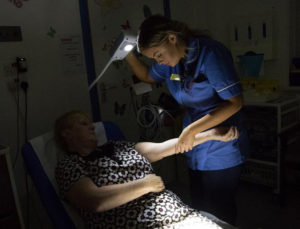A Health and Safety Executive (HSE) position statement on night work cancer risks has been dismissed as ‘nonsense’ by leading occupational cancer experts.
Since a 2016 study backed by the UK health and safety regulator HSE and Cancer Research UK (CRUK) concluded the classification of night work as a cause of breast cancer was ‘no longer justified’, both organisations have stuck by this conclusion.
However, an international expert working group convened in 2019 by the UN’s International Agency for Research on Cancer (IARC) confirmed not only the previous ‘probable’ breast cancer rating for night work, it added prostate, colon and rectal cancers to the work-related associations.
Questioned by Hazards magazine on IARC’s new findings, published in a June 2020 IARC monograph, an HSE spokesperson said: “HSE’s position on this matter remains unchanged.” HSE added: “The IARC review highlighted the challenges in measuring the potential effects of night shift work whilst taking into account other cancer risk factors when performing research studies, and that large-scale studies may not necessarily be able to provide the appropriate evidence to clarify if there is a causal link between night shift work and cancer.”
However, Eva Schernhammer, a Harvard Medical School expert who was on the IARC working group, described the HSE responses as “pretty stunning” and “difficult for me to reconcile.”
She added that HSE’s comments on the research challenges were “such nonsense! It was the study that they funded, that should not have been conducted at the first place given the limited information it allowed to draw – underpowered, too short follow-up, women long out of night work given their age. But clearly there are other large-scale studies which very much were able to 1) take into account other cancer risk factors; and 2) were very much able to provide the appropriate evidence.”
CRUK also stood by the earlier research findings. CRUK’s Amy Hirst told Hazards the IARC review involving top cancer scientists from round the world was “interesting,” but added “there haven’t been any major changes to what we know since IARC’s last review.”
Danish Cancer Society researcher Johnni Hansen, who was also on the IARC expert group, described Hirst’s comments as “arrogant and conservative, scientifically not correct, and in contradiction of international expert evaluations,” including both IARC reviews.
In addition to the IARC monograph, he pointed to a 2018 report from the US government’s Office of the Report on Carcinogens (ROC/NTP) which concluded different night work circumstances were either ‘known’ or could be ‘reasonably anticipated’ to cause cancer in humans.
Schernhammer said the CRUK comments were in “direct contravention” of the facts.
Night work has risen to record levels in the UK. Around 3.25 million people – more than 1 in 9 workers – work in Britain’s night-time economy. ‘In the dark’, the new Hazards magazine report on the controversy, concluded: “As HSE sits on the sidelines, the known at-risk group of night workers it is ignoring has just increased by at least 2 million and could equate to several hundred extra work-related cancers each year.”
- In the dark: HSE refuses to see the light on night work and cancer risks, Hazards magazine, number 150, 2020.
- IARC Monographs Volume 124: Night Shift Work, June 2020.



Bizarrely we have the reverse problem with the HSE following the HSE commissioned Better Display Screen RR 561 2007 report concluding the 1993 UK DSE Regulations are ineffective yet, still refuse to accept eye-strain, CVS or Screen Fatigue as a visual repetitive stress results in myopic / asthenopic monocular adaptations, now classified as the other Global Pandemic by the WHO scaled in their ICD-10, is anything but “temporary”!